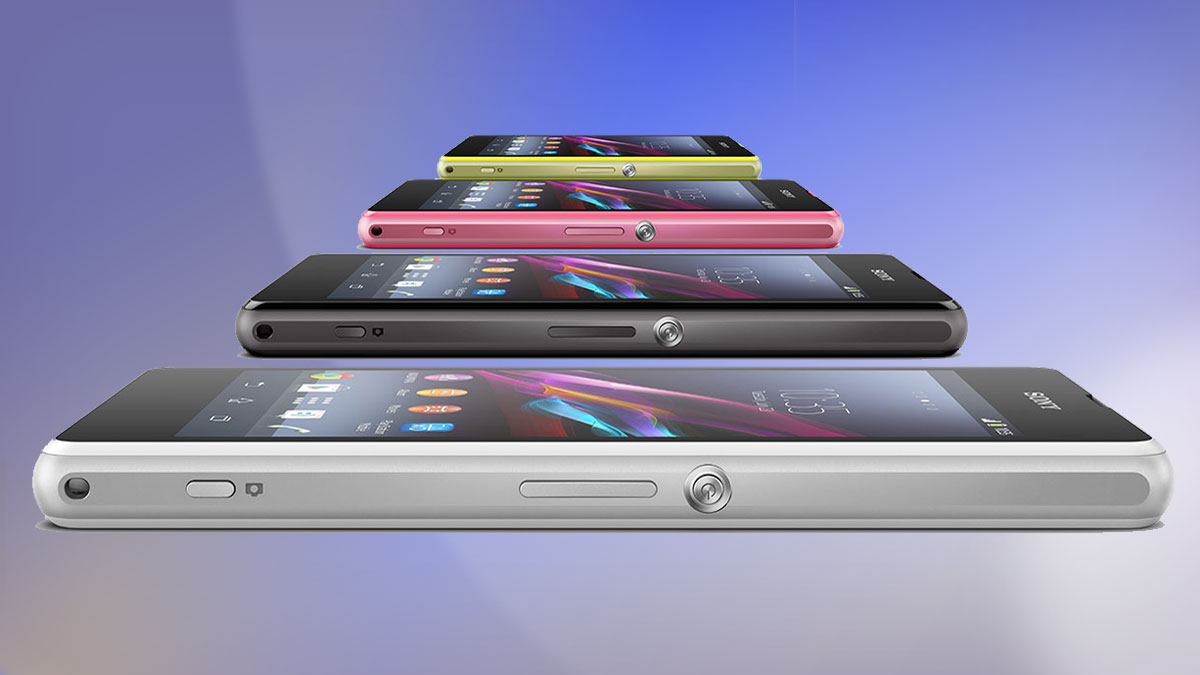Why you can trust TechRadar
Battery life
With the amazing specs that sit inside the Sony Xperia Z1 Compact, it would be a more than reasonable assumption to believe the battery pack would have to be enormous. Instead, it sits at a rather meagre-sounding 2300mAh.
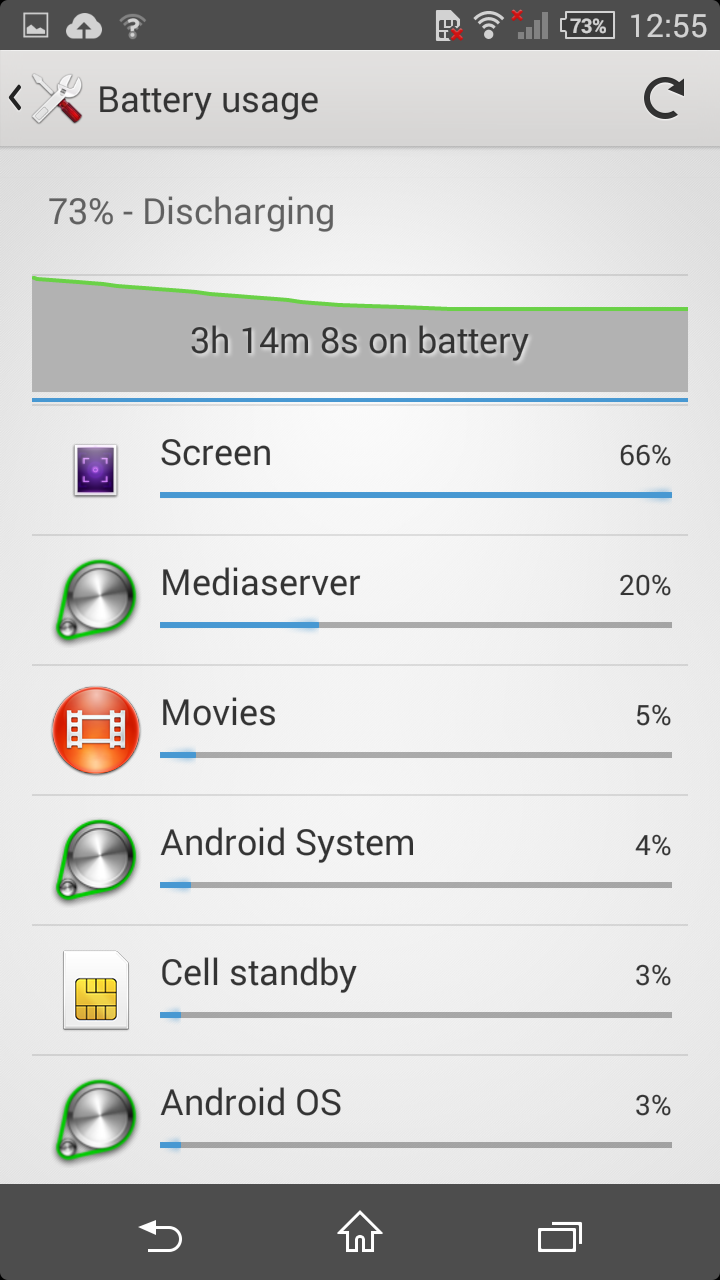
Battery life is all relative though. For instance, the Galaxy S5 has a 2800mAh option, but has as much larger screen, less efficient CPU and more pixels to deal with, so I think this size to weight combo from Sony is spot on.
During general day to day use, I found that the battery behind the Xperia Z1 Compact was a lot more than sufficient.
To help properly quantify this, from 7am one day I sent and received four emails, 140 SMS messages, had a race on Asphalt 8and took 70 pictures as well as uploading them via Wi-Fi to Dropbox in an area with patchy signal.
I still had a whopping 53% battery left at midnight. Lighter users should achieve two days' usage easily.
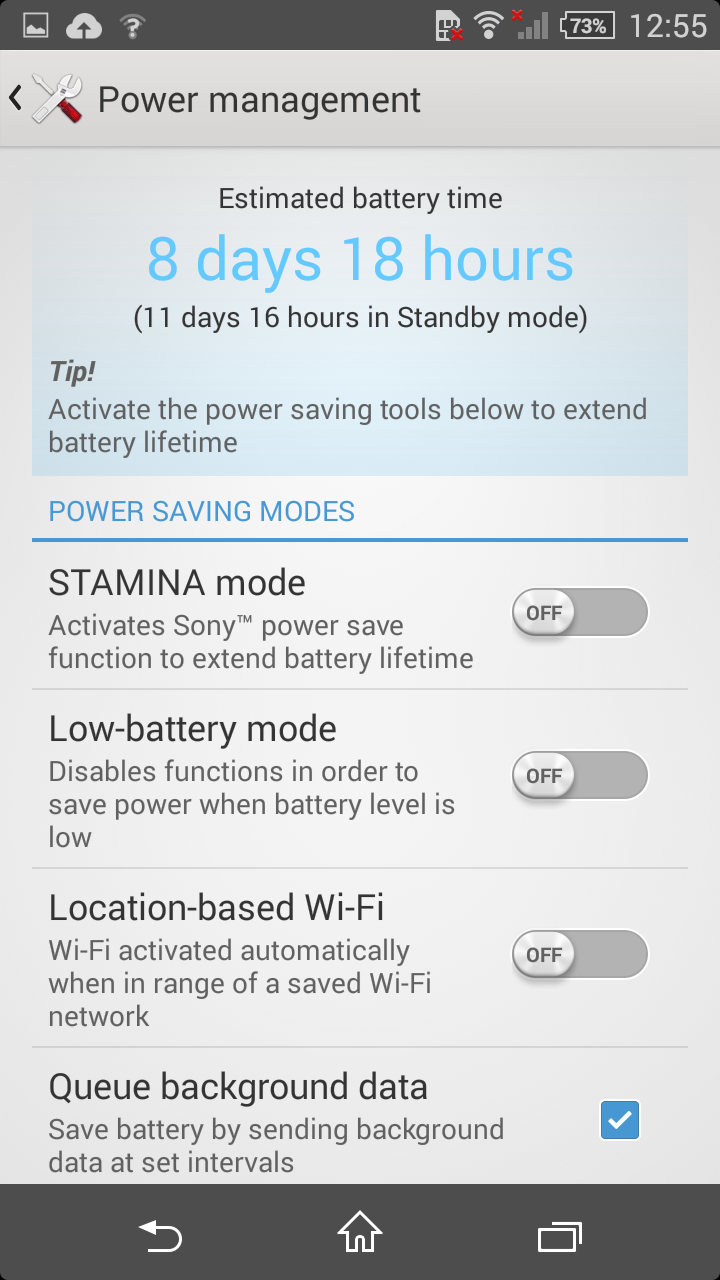
The Xperia Z1 Compact also performed well against the top-endHTC One M8 (which packs in a 2600mAh battery) in day to day use.
The impressive battery life can be attributed to the smaller screen and lower resolution placing a lot less strain on the GPU (but then again, the same could be said of the Mini rivals), coupled with Sony's battery-saving techniques. Stamina mode is particularly impressive, as it cuts down the amount of work the phone has to do.
Sign up for breaking news, reviews, opinion, top tech deals, and more.
Turning this on gave an estimated boost from 11 hours of use to a whole day which was perfect, giving the Xperia Z1 Compact the extra juice to cope with being away from the charger, and really will stave off battery depletion in general day to day life.
Having the quick toggles in the notification bar also means that switching Wi-Fi on and off, as well as disabling GPS or mobile data (things that can heavily drain the battery) is really easy.
A special shout out should be saved for the Qualcomm 800 chip at the heart of the Z1 Compact too - it's a real power saver and, while it does seem to diminish over time (and has been replaced by the 801 processor seen in the new wave of phones) the general efficiency is something that I've given a big thumbs up to.
The Sony Xperia Z1 Compact also comes with all the necessary connectivity options too; Wi-Fi, Bluetooth, NFC, 4G LTE and GPS are all catered for. This ensures it is able to compete against all the 4G-toting flagships.
The essentials
There are certain features that any modern smartphone should include, and one of those is the ability to make and receive phone calls.

I found that calls always came through clearly, leaving no times where I was struggling to hear or struggling to be heard. Signal holding was also as impressive, getting and holding signal as well as the HTC One M8.
In-call options were limited to the standard Android options (speaker phone, Bluetooth, keyboard etc) which will suffice for most. However, I would like to see some more innovation here, as companies like Samsung have implemented features like instantly being able to re-dial or message a contact when you hang up.
The contacts app is clean and well designed, the addition of the letters down the right hand side making it supremely easy to navigate quickly.
The messaging options on the Sony Xperia Z1 Compact are also all in order without being spectacular. In order to accomplish this Sony has included a skinned SMS app, as well as the standard email and Gmail apps plus Google Hangouts.
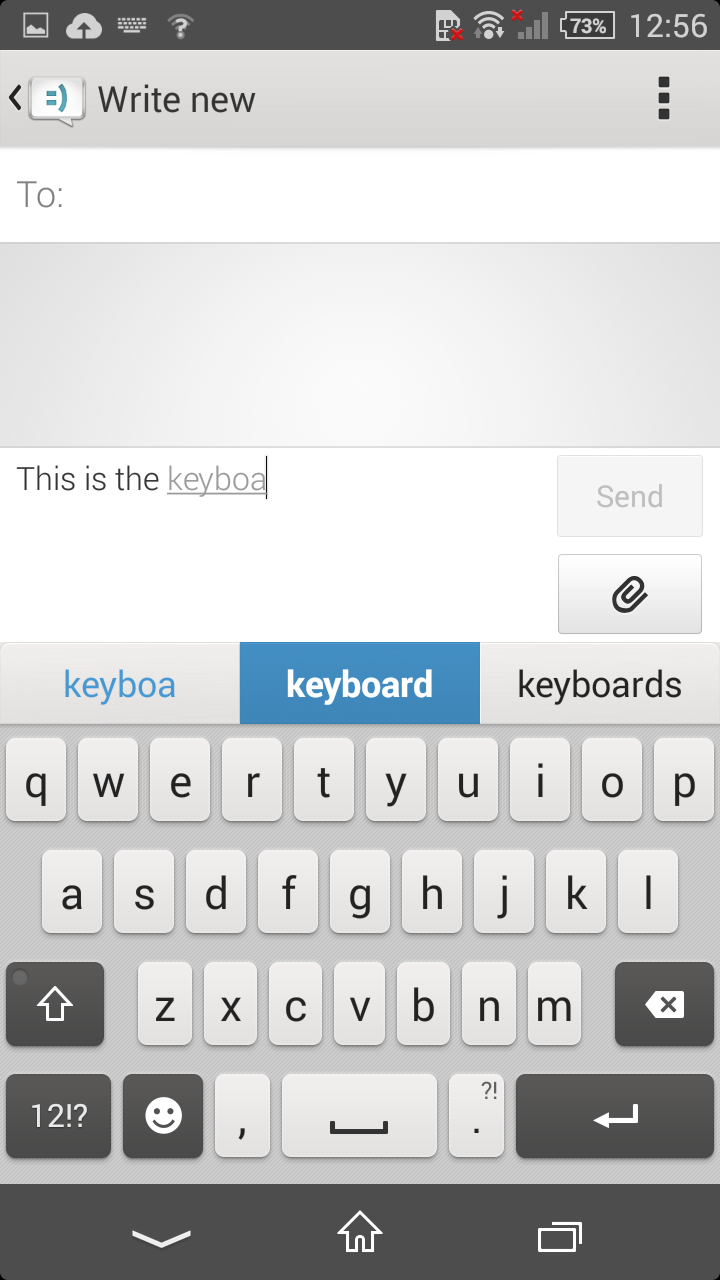
None of the apps are inspiring, yet are all completely functional. The SMS app look is customised with the phone's theme, meaning you can't set custom backgrounds and font styles. It's a little thing, but something that the Z1 Compact would feel smarter for having.
Missives are handled with the Xperia keyboard, which appears to be modelled on the superb Swiftkey keyboard.
Unfortunately, Sony seems to have taken a near-perfect third-party app and diminished its effectiveness; the space bar is far too short so I kept hitting the full stop button.
Regularly sending messages that read "Hello. How.are.you today?" proves to be more than a little frustrating. This is something that Sony really needs to look at, perhaps go back to the drawing board and change a little less of what makes Swiftkey so popular.
On the plus side you can remove the smiley key, which makes the spacebar slightly wider, but it's still not a particularly brilliant typing experience.
You could just download the original SwiftKey keyboard (or other decent alternatives on the market, although this is my favourite) but that can involve a little bit of cash. If you do buy this phone, I urge you to do so though.
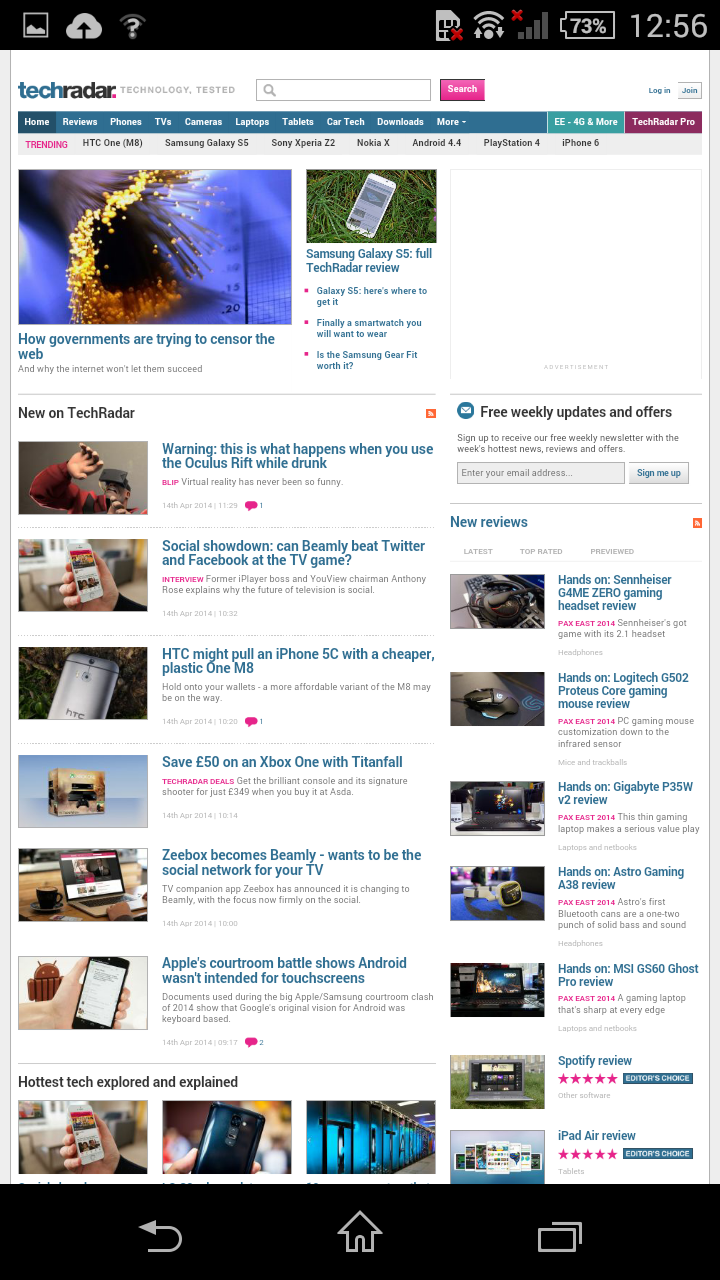
Unlike many OEMs, Sony hasn't included a version of the stock Android browser to sit alongside Google Chrome, thereby removing any confusion over which browser is best to use. Chrome has always been my preference as it syncs with the Chrome desktop browser, as well as any other devices.
Web browsing on the 4.3-inch screen was never going to be as pleasant as on a full five-inch flagship, but viewing sites on the Xperia Z1 Compact was still easy as text was legible and images were bright.
The downside to having no stock browser is that it misses out on Flash support, something that is built into the HTC browser. Text reflow is also missing. With all the extras added to the UI, Sony really could have given a little something extra to the Android browser.
It's also quite hard on the phone's power, as there was sometimes some lag scrolling around the screen when using Chrome. I've seen the same thing on the HTC One, which works fine on its own inbuilt browser, so be warned that you might not have a stellar browsing experience on the Z1 Compact.
